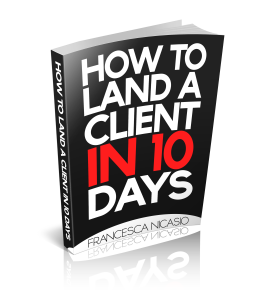 When talking about the pros and cons of freelance life, a disadvantage that often comes up is lack of stability. Not having a predictable paycheck can be daunting and can give people the idea that freelancing isn’t a very reliable source of income.
When talking about the pros and cons of freelance life, a disadvantage that often comes up is lack of stability. Not having a predictable paycheck can be daunting and can give people the idea that freelancing isn’t a very reliable source of income.
It’s a fair point, but it isn’t always the case for many freelancers — including our interviewee in today’s post.
Meet Laura Heller, one of the most prolific journalists in the retail industry. Laura is an editor for RetailDive and a contributor to Forbes and Yahoo! Shopping. She’s also an adjunct professor at Columbia College Chicago.
I caught up with her earlier this year, and one of the things we talked about was the stability of freelance writing. According to Laura, her experience in publishing taught her that freelancing can, in some ways, be more stable than traditional employment.
She shared how she came to that realization and offered insights to help you gain more stability in your own freelance writing career.
Check it out.
How freelance writing became a more consistent and reliable line of work
Laura started her career at a B2B publishing company, covering the retail industry for a supermarket trade publication. Not long after that, she joined Discount Store News (now Retailing Today), where she covered emerging beats in consumer electronics, home technology, and retail.
Covering retail intensively allowed Laura build a name for herself as a retail journalist, and this opened up plenty of opportunities. She started taking on freelance writing clients, a move that served her well because this was around the time the recession hit.
“Publishing was being challenged,” she shared. “I could see things happening in our company and our competitors that weren’t very positive, and I didn’t want to put myself in a precarious position.”
Laura was laid off in 2006, at which point she started freelancing full time.
“I never looked back,” she said. “I don’t think I even looked for a new full-time position after that. I had clients; I had people approaching me because I had the experience, and I just kept going.”
And here’s the thing: freelancing ended up being a more reliable and consistent line of work for Laura.
“Publications expand and contract; ad sales shift from print to digital and mobile, then disappear completely. What was once seen as the stability of full-time employment has, in many ways, been replaced a more stable freelance life,” she added.
Build freelance writing stability by taking on varied gigs
 How did Laura achieve stability in her freelance life? Two words: varied gigs.
How did Laura achieve stability in her freelance life? Two words: varied gigs.
She gave the perfect analogy to illustrate this: Imagine that you’re balancing multiple plates on a pole.
“Think of yourself as a juggler in a circus, and you’re balancing five plates on a pole. Each one of those plates represents a client or a job, or a freelance gig. Those gigs should be varied,” she advised.
“One could be a regular blog or newsletter you contribute to weekly or monthly, so you know you have that steadily coming in. One could be a publication that you have a column for that you can contribute on a regular basis. And one might be research whitepapers and marketing materials and such. So it may not be as steady, but it’s lucrative when it comes.”
“So you have five plates spinning, and when one falls, you still have four spinning, which means you still have something to support yourself with until you pick up a new one.”
She continued, “I found that analogy to serve me very well. I’m an adjunct professor at Columbia College in Chicago; for the past 10 years I’ve taught on business to business journalism, teaching people to do what I do. But I also have a regular contributorship with Forbes and before that AOL. Then there are regular newsletters that I would produce, which went out weekly or monthly depending on the client.”
Attract clients by becoming an expert
Laura has written for top-tier publications and companies such as Forbes, AOL, and Yahoo! Shopping. And one thing that might surprise you is that she’s never actively sought out those gigs.
In fact, she’s never had to actively seek out clients. Opportunities simply come her way.
Her secret? She specializes in an industry (i.e., retail)
“When you build a reputation, and you have a name in a niche, I think that’s a very marketable thing to have.”
Selecting a niche and being really good at writing for the market or industry can unlock a lot of opportunities. When you’re an expert who consistently publishes well-written content in a particular field, clients in that market will naturally gravitate towards you.
Not only that, but specializing in an industry allows you to build connections — with writers, editors, sources, and companies. That, in turn, makes it easier to come up with content, land placements, and find gigs.
Find your “gang”
Speaking of connections, one thing that helped Laura navigate the world of freelancing was networking with other writers.
“I fell in with a gang of freelancers, all women,” she shared. “There were 12 of us, and we all had different specialties. Someone was straight up business for Reuters, somebody was health care coverage, and someone was IT and tech and science.”
“We would meet monthly at a coffee shop, and we created our own closed Facebook group to help each other field questions with things like rates. We also discussed tax incentives and other topics.”
“We pooled our resources and were able to share the burden of being a freelancer. It was wonderful because we were so not competitive with each other.”
Laura continued, “if there’s a possibility to create that kind of community in your town, because meeting people and getting out of the house face to face, getting that social interaction was really important.”
Final words
Hopefully, Laura’s insights gave you some ideas on building a more stable freelance writing career.
If you’d like to learn more about Laura or would like to get in touch, you can find her on LinkedIn and Twitter.
Now, I’d love to hear from you. How do you ensure that you always freelance writing projects in the pipeline? Share your thoughts in the comments.
Download this free ebook and discover the steps you need to take to land new clients in a week and a half. Enter your email address and you'll get:
- Step-by-step instructions on how to find prospects and get them to hire you
- Detailed advice and action steps to boost your client-hunting efficiency
- Insights from other freelance writers on the best ways to land clients
